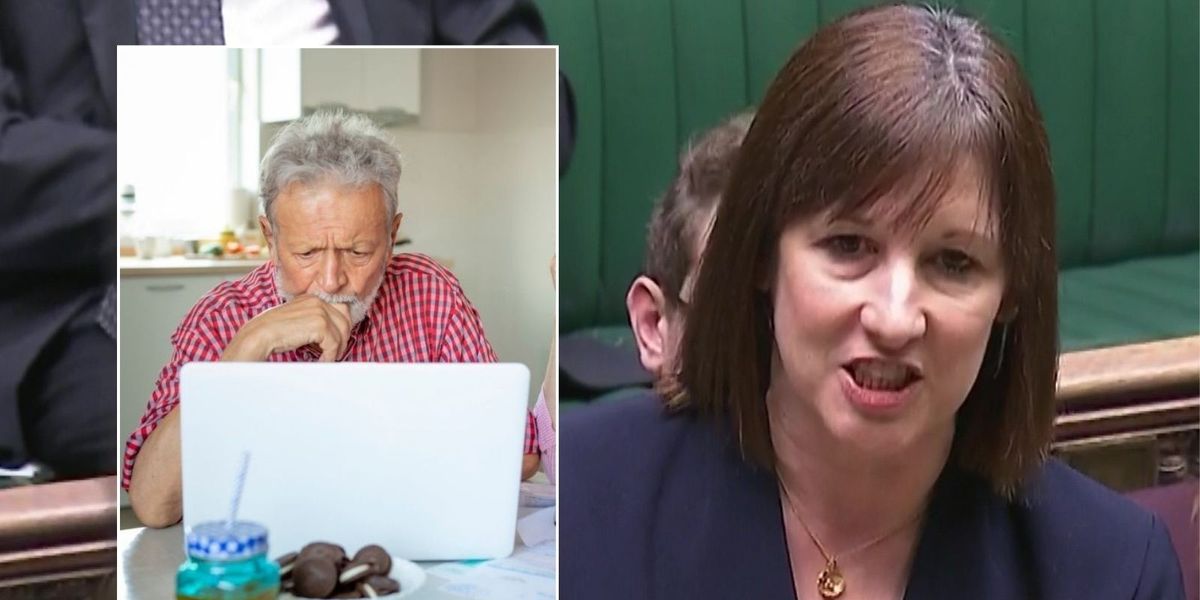Labour’s plan to drag pensions into inheritance tax will be a “slow-motion car crash” that could see grieving families hit with tax rates of up to 90 per cent on inherited pensions, Britain’s leading wealth management firms have warned.
The heads of firms managing £430billion for British savers have launched a coordinated attack on Rachel Reeves’ proposals to apply inheritance tax to undrawn pension pots.
In a stark warning to the Chancellor, industry leaders described the inheritance tax plans as “flawed and potentially damaging” to bereaved families when introduced from April 2027.
The changes are expected to cost grieving families around £65,000 on average and could discourage people from saving into their pensions. The Treasury expects these changes to generate around £1.5billion annually by 2030.
The proposals would see unused pension funds included within estates for inheritance tax purposes, with beneficiaries potentially facing double taxation through both inheritance and income tax.
Higher-rate taxpayers could face a marginal tax rate on inherited pensions of at least 64 per cent, with some cases reaching up to 90 per cent according to accountancy firm RSM.
The bosses of Hargreaves Lansdown, AJ Bell, Interactive Investor and Quilter have called on the Government to reverse the plans announced in the October Budget
PA/GETTY
The bosses of Hargreaves Lansdown, AJ Bell, Interactive Investor and Quilter have called on the Government to reverse the plans announced in the October Budget.
Under current rules, pensions are considered a tax-efficient way to save, but this will change when they become subject to the 40 per cent death duty rate from April 2027.
Michael Sumersgill, chief executive of AJ Bell, warned the Government’s proposals threaten to create “delay and complexity” and lead to “financial gridlock in the probate process”. The changes will specifically target wealth savers who have not drawn down their full pension pot.
Tom Selby, of AJ Bell, said: “Government plans to bring pensions into inheritance tax risk turning into a slow-motion car crash, adding significant delays to the payment of money to beneficiaries, hiking costs, miring estates in complexity.”
Dan Olley, chief executive of Hargreaves Lansdown, added: “We understand the need for Government to balance the books, but changing rules in this way adds complexity at an already stressful time. People need stability in the tax system to invest for the long term.”
Helen Morrissey of Hargreaves Lansdown also warned the plans would be a “significant financial burden” on beneficiaries and “an ongoing nightmare” for administrators.
Following the changes, RSM explained that there are some instances where the addition of a pension fund to someone’s estate can cause them to lose the Residence Nil Rate Band (RNRB). This is a tax-free amount of up to £175,000 that reduces inheritance tax (IHT) on residential property.
If the estate exceeds £2million, the RNRB starts to decrease, reducing by £1 for every £2 over that threshold. For example, someone with a £2.35million estate will lose their RNRB. In the case of someone with a £2million estate and a £350,000 pension, they could face a high effective IHT rate because the RNRB may be lost.
If the pension is withdrawn as income, it could be taxed at a high rate—45 per cent for an English, Welsh, or Northern Irish taxpayer, or up to 48 per cent for a Scottish taxpayer.
LATEST DEVELOPMENTS:
As a result, a Scottish beneficiary could end up with only £29,906 from the £350,000 pension pot (a 91.46 per cent tax rate), while an English, Welsh, or Northern Irish beneficiary could receive as little as £36,787 (an 89.49 per cent tax rate).
For a £1million pension pot, an initial 40 per cent inheritance tax would reduce it to £600,000. Basic-rate taxpayers would then face an additional £120,000 in income tax, leaving £480,000 – an effective 52 per cent total tax rate.
Higher-rate taxpayers would pay £240,000 in income tax, receiving £360,000 – equating to a 64 per cent total tax rate. Additional-rate taxpayers would be hit hardest, paying £270,000 in income tax and receiving £330,000 – resulting in a 67 per cent effective tax rate.
A Treasury spokesman defended the policy, stating: “Inherited pensions will be subject to inheritance tax once and, if due, income tax once, as is the case with other savings.
“We continue to incentivise pensions savings for their intended purpose of funding retirement instead of them being openly used as a vehicle to transfer wealth.”
Most estates will remain exempt from inheritance tax, with the first £325,000 inheritable tax-free. This threshold rises to £500,000 if the estate includes a residence passed to direct descendants. The allowance can reach £1m when passed to a surviving spouse or civil partner.
Industry leaders have proposed alternative approaches to the Government’s plans.
Kate Smith of Aegon suggested exploring “a simpler and more effective alternative” that would keep tax charges within the pensions regime. One proposal includes making the first £100,000 of unused pensions on death inheritance tax-free.
Baroness Ros Altmann, a former pensions minister, called for replacing the current plan with a 20 per cent flat rate of tax on pension wealth.
She said: “A 20 per cent flat rate would not be as good as the current system, but at least there would be no incentive to take money out quickly.”












